Williamsburg, Virginia, is a very desirable place for people to live.
It offers many benefits and opportunities for individuals to hope to settle in the area.
However, just like any other city, some drawbacks exist.
Before moving to Williamsburg, consider the pros and cons of living there and use this information to help determine if it is the right decision for your particular needs.
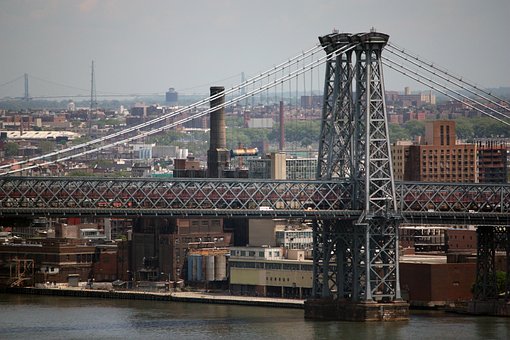
Contents
Pros of Living in Williamsburg, Virginia
If you are considering a move to Williamsburg, Virginia, you will want to know about some of its highlights.
Consider these top reasons why residents think Williamsburg, Virginia is a great place to live.
1. Low Poverty Rate
Compared to other similar-sized cities in the vicinity, Williamsburg, Virginia, tends to have a considerably lower poverty rate.
The standard of living is suitable for most residents, which translates into lower crime rates and satisfied residents.
2. Lower Cost of Living
In addition to having an employee considerably lower poverty rate than any similar-sized city along the Eastern seaboard, the cost of living is lower in Williamsburg, Virginia.
Anyone considering moving to this area will notice that their dollars can stretch further for necessities, utilities, and other daily expenses.
3. Safe City
The crime rate in Williamsburg, Virginia, is substantially less than in many other cities in the region.
One reason is because of the strong military presence in the area, and there is also a strong sense of community that can help prevent many crimes.
Anyone considering moving to Williamsburg, Virginia, can enjoy a safe area for themselves and their family.
4. Good Education Opportunities
Williamsburg, Virginia, is known for having high-performing schools.
Private schools are known for providing an excellent education, and public schools are top-performing.
Anyone with children planning to move to Williamsburg will be pleased with the variety of educational opportunities and the quality of the instruction at those institutions.
5. Good Transportation System
Williamsburg, Virginia, has a relatively good public transportation system.
One reason for this is because it is a heavily desired tourist attraction, which means that adequate public transportation needs to be in place.
Anyone who plans on using public transport should be aware, however, that the transportation system may not service areas outside the immediate boundaries of the city.
6. Good Infrastructure
Williamsburg has a good infrastructure and can comfortably support the number of residents in the area.
The roads are relatively well-kept, and residents have access to adequate utilities.
People considering moving to this area will be pleasantly surprised by how well the city’s infrastructure is kept and will have few issues with the change of location.
7. All Four Seasons
People who enjoy experiencing all four seasons will love living in Williamsburg, Virginia.
Each season has its own distinguishable climate changes and attributes.
This area is stunning when the leaves change colors in the fall, another big tourist attraction.
8. Convenient to Nearby Larger Cities
Another reason Williamsburg is desirable for new residents is that it gives a small town feel but is accessible for those who don’t want to live in any major cities nearby.
However, they are not far away when residents want to travel to a larger city for entertainment, events, or something else.
Cons of Living in Williamsburg, Virginia
While Williamsburg is an ideal place to relocate for many people, there are some downsides to living there.
Consider these cons before deciding on moving to this location.
1. Densely Concentrated Population in Tourist Areas
Williamsburg, Virginia, definitely has a small town feel, but do not let that fool you.
There is a dense concentration of visitors in the central part of the city.
Anyone considering moving to this area should be aware of this fact and make appropriate plans to avoid the main part of the city if you want a quiet neighborhood.
The dense concentration of visitors can also create issues with crowding on the streets while driving from place to place.
2. Traffic Congestion
The traffic in Williamsburg, Virginia, can get quite hectic at times.
This is especially true during rush hours or when the military base is changing shifts.
Take time to make alternate plans or have enough time to get from one place to another during times of heavy traffic.
3. Lack of Entertainment
Anyone moving to Williamsburg, Virginia, hoping for a thriving nightlife might be disappointed.
Because this area is primarily a historical tourist town, there is a significant lack of nightlife or entertainment options.
Anyone wanting a night out on the town will have to travel to one of the nearby cities to indulge.
4. Military Bases
Having military bases in the city can be a pro, but it can also be a con because they can be very noisy.
In addition to planes coming and going throughout the day and night, there is also a considerable amount of traffic resulting from military personnel driving to and from the base daily.
5. Limited Public Transportation
If you plan on moving to Williamsburg, Virginia, you will probably want to have a vehicle if you are living on the outskirts of the main part of the city.
While there is some public transportation in the busiest parts of town, it may not be sufficient to get to all the places you need to be.
Before moving to this area, take note of where you need to travel daily and have a plan in place to prevent issues.
6. Severe Weather
Williamsburg is unfortunately prone to bouts of severe weather throughout the year.
Its location makes it great for experiencing all four seasons, but that also means more opportunities for severe weather threats.
It is especially important to note any approaching tropical activity or severe weather events in the wintertime.
It is best to stay informed about any approaching weather and have supplies ready for a plan of action on hand to avoid inconveniences or dangers.
7. Cold Winters
Although Williamsburg, Virginia, experiences all four seasons, it also experiences a significant winter period when there are times of extreme snow and even ice storms.
Individuals moving to this area may want to learn more about protocol during extreme winter weather if they are not already familiar with it.
People who are not used to winter weather or frigid temperatures will want to educate themselves on how to stay safe during the winter months.
They will want to ensure their car is in good working condition and has the appropriate winter gear.
It is also essential to have appropriate clothing to protect your body while outside in cold weather.
It is also a good idea to have emergency supplies on hand in the event of a blizzard or tropical system, which may affect the electricity available for people’s homes.
8. Tourists
Because Williamsburg comfort Virginia’s historical significance, there are tourists throughout the year in this area.
This is great for the economy.
However, it can be somewhat problematic for individuals who live in the city.
Anyone planning to move to Williamsburg should expect more traffic and minor issues related to heavy tourism, especially in the spring through early fall months.
The best course of action to avoid heavy traffic or congested areas is to take note of the city’s most popular and populated areas and take alternate routes to avoid any delays.
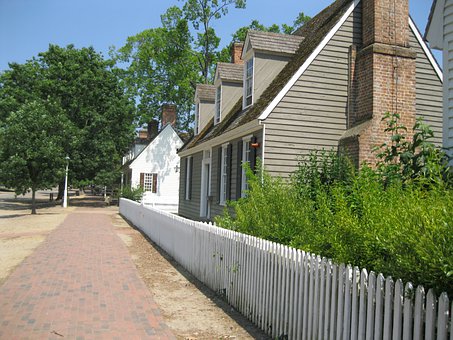
Pros and Cons of Living in Williamsburg, VA – Summary Table
| Pros of Living in Williamsburg, Virginia | Cons of Living in Williamsburg, Virginia |
|---|---|
| 1. Low Poverty Rate | 1. Densely Concentrated Population in Tourist Areas |
| 2. Lower Cost of Living | 2. Traffic Congestion |
| 3. Safe City | 3. Lack of Entertainment |
| 4. Good Education Opportunities | 4. Military Bases |
| 5. Good Transportation System | 5. Limited Public Transportation |
| 6. Good Infrastructure | 6. Severe Weather |
| 7. All Four Seasons | 7. Cold Winters |
| 8. Convenient to Nearby Larger Cities | 8. Tourists |
Virginia Safety Overview
READ THE FULL REPORT: Virginia Safety Review
Safety Index: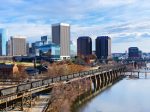
- OVERALL RISK: LOW
- TRANSPORT & TAXIS RISK: LOW
- PICKPOCKETS RISK: LOW
- NATURAL DISASTERS RISK: MEDIUM
- MUGGING RISK: LOW
- TERRORISM RISK: LOW
- SCAMS RISK: MEDIUM
- WOMEN TRAVELERS RISK: LOW
Frequently Asked Questions
What is the population of Williamsburg, Virginia?
The current population of Williamsburg, Virginia, is just over 15,000 individuals.
However, it seems much more populated due to the thriving tourism industry in this historical city.
The nominal population gives the city a small town feel for residents.
However, this area experiences heavy congestion both in terms of foot traffic and vehicle traffic because of the area’s military base and tourism industry.
What is the average monthly cost in Williamsburg, Virginia?
The average monthly cost of living in Williamsburg, Virginia, for one single adult, is approximately $3,500, including rent and utilities.
This figure also includes entertainment, dining, and transportation.
This is one of the most affordable medium-sized cities in the region.
It is an ideal choice for people moving to the area for its safety, history, proximity to large cities, and educational opportunities.
In terms of a yearly cost of living, residents need to make over $42k per year to comfortably afford to live in the city.
What are the average temperatures in Williamsburg, Virginia?
The average low temperature for Williamsburg, Virginia, in the wintertime, is 30 degrees Fahrenheit; however, the average high temperature in mid-summer is 89 degrees Fahrenheit.
These averages translate to mild temperatures year-round in most cases and make for a very pleasant place to live in most cases.
This is the perfect climate for people who want to experience all four seasons without prolonged periods of harsh temperatures.
What is the crime rate in Williamsburg, Virginia?
The crime rate statistic for Williamsburg Commerce, Virginia, is 16.34, and the national average is 22.
This translate into a little over 38 crimes per 1,000 residents.
Williamsburg is considered one of the safer medium-sized cities to live in in the Eastern seaboard area.
This is one of the reasons why many people love living in Williamsburg.
It is safe for the average citizen and their children.
What is the closest major city to Williamsburg, Virginia?
Williamsburg, Virginia, is located within 50 miles of three more prominent cities.
These cities include Chesapeake, Virginia Beach, and Norfolk.
This makes Williamsburg a very conveniently located City in Virginia.
Anyone interested in going to a major city will have to drive a little over 100 miles to get to Washington DC.
Additionally, Baltimore, Maryland, is only 150 miles from Williamsburg.
The proximity to these larger cities makes Williamsburg an ideal place to live, yet it has access to all the amenities these cities can provide.
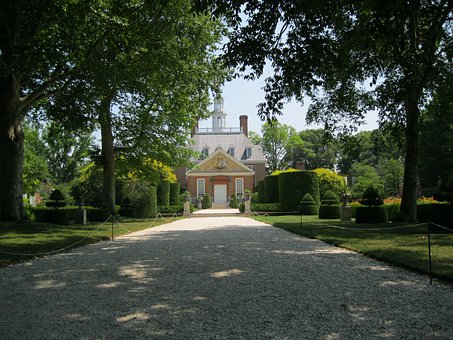

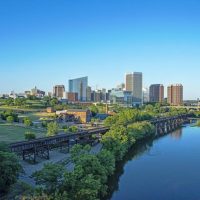
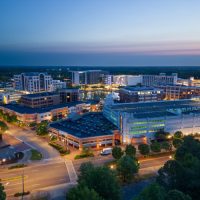

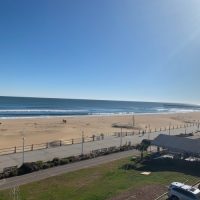






I have always been drawn to the charm and history of Williamsburg, VA, but after reading this article, I can see that there are both pros and cons to living there.